World
Out in the World: LGBTQ news from Europe and Asia
Thai lawmakers approve marriage equality bill

PORTUGAL
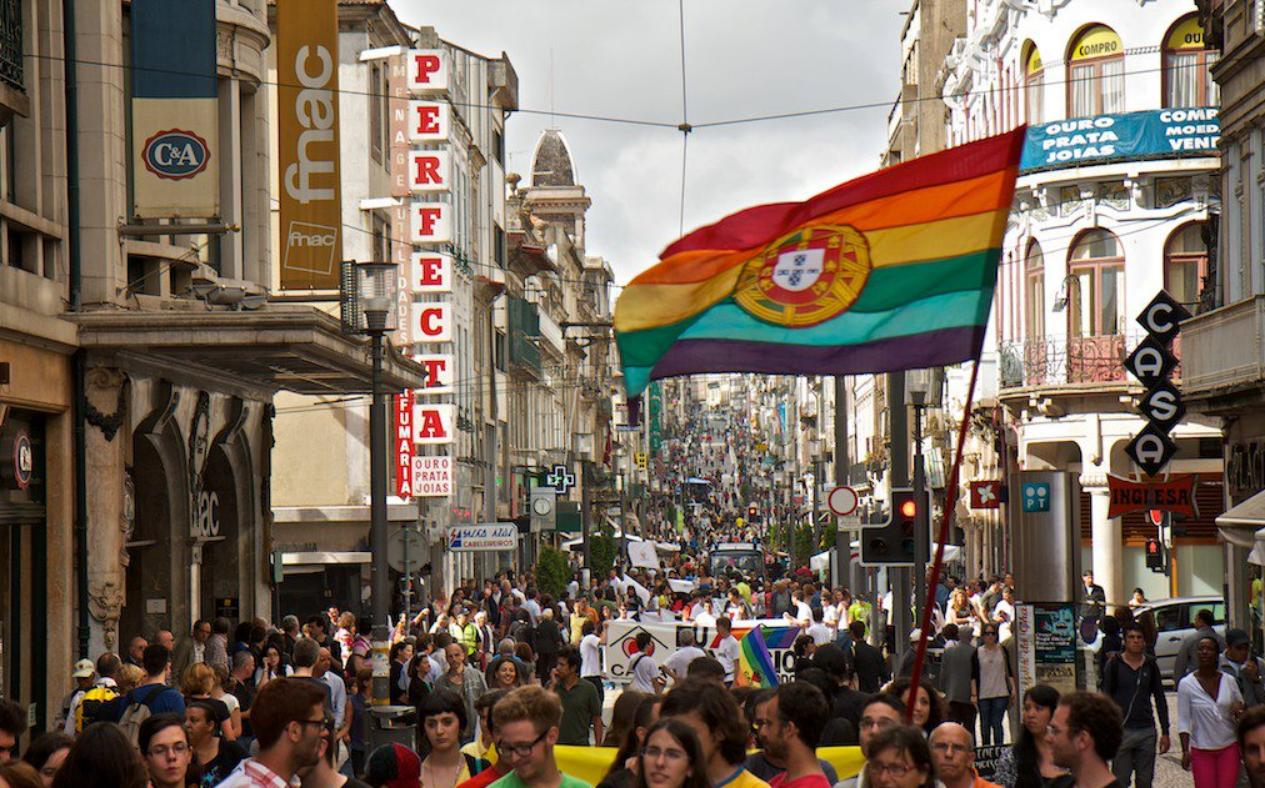
The Portuguese Parliament passed the final draft of a bill this past week, which was first introduced last May by the Bloco de Esquerda, the populist democratic socialist political party, that outlaws “any practice aimed at the forced conversion of sexual orientation, identity or gender expression.”
Joined in a coalition with the Livre and PAN parties, the new law incorporates into the country’s penal code that “whoever subjects another person to this type of treatment, including the performance or promotion of medical-surgical procedures, practices with pharmacological, psychotherapeutic or other psychological or behavioral resources, will be punished with a prison sentence of up to three years or a fine.”
During the parliamentary debate in the Constitutional Affairs, Rights, Freedoms and Guarantees, the College of Physicians Committee issued a statement in which it criticized this type of therapy for “not having proven its effectiveness nor respecting the ethical and deontological standards of medical practice.” The organization highlighted that “diversity in sexual orientation and gender identity represents normal expressions, which cannot be considered diseases.”
The law now heads to President Marcelo Rebelo de Sousa for his signature.
Passage of the law by Parliament brings Portugal into alignment with other European Union nations. Malta was the first European country to ban the practice followed by Germany, Greece, Albania, France and Belgium.
SPAIN

The Assembly of Madrid, the unicameral autonomous legislature which governs the region around Spain’s capital city, voted this past week to rollback protections for transgender people. The measure was passed by the conservative People’s Party.
The measure also contained a proviso that guidelines preventing harassment of LGBTQ students in schools is eliminated, all content aimed at showing the LGBTQ community and the training of teachers in this matter are removed from the study plans.
The bill amended a regional trans rights law and an LGBTQ rights law, both of which were passed in 2016. The decision makes Madrid the first Spanish region to roll back such legislation. The anti-trans bill stripped the previous law of its fundamental pillar: The concept of “gender self-determination” or “freely expressed gender identification.”
The PP’s new law replaced the terms “trans people” and “gender identity” with “transsexuals” and “transsexuality,” terms which activists say are demeaning.
The Standard, a British news outlet, reported the move by the PP party sparked outcry from the opposition in Madrid and LGBTQ activists.
Carla Antonelli, an assembly member for the left-wing Mas Madrid party who is trans, wore red gloves symbolizing bloodied hands during the raucous debate preceding the vote. She called the bill an “abomination” and compared it to the actions of Nazi SS doctor Josef Mengele, who “also spoke of science to exterminate Jews and LGTBQ people.”
“When you press that button to vote for this infamy … you will all have blood on your hands,” Antonelli said adding: “This is terrorism towards trans people. You won’t be able to wash your dirty conscience because we will remind you of it every day.”
The Standard also noted that in December 2022, Spain passed a nationwide bill allowing trans people aged 14 and over to change their legal gender without the need for psychological or other medical evaluation, though those aged 14-16 would still need parental or guardians’ agreement.
Fourteen other Spanish regions out of the country’s 17 have laws for the protection of trans rights, LGBTQ rights, or both, on the books.
GREECE

The spokesperson for Greece’s center-right government announced Dec. 21 that legislation legalizing same-sex marriage will be brought to the Hellenic Parliament before its current term expires in 2027.
Pavlos Marinakis noted this action would take place despite facing staunch opposition from the country’s influential Orthodox Church, which the church’s governing Holy Synod had submitted late on Dec. 20, expressing strong opposition to legalizing same-sex marriage.
The Greek City Times reported that the church’s stance drew significant attention from the Greek news media, sparking a lively debate within the country. Opinion polls indicate that Greeks are evenly divided on the issue of same-sex marriage but generally oppose granting full parental rights to gay couples.
“The position of the Church of Greece remains that children have an innate need and therefore a right to grow up with a male father and a female mother. No amount of social modernization and no amount of political correctness can bypass (this),” the church document said.
“Children are not companion pets for those who wish to feel like a guardian, and are not ‘accessories’ to formalize or make same-sex cohabitation socially acceptable,” it added.
The Associated Press noted that Greece’s left-wing opposition leader, Stefanos Kasselakis, married his male partner in New York in October, several weeks after winning a party leadership election.
Greece legalized same-sex civil partnerships in 2015.
HUNGARY
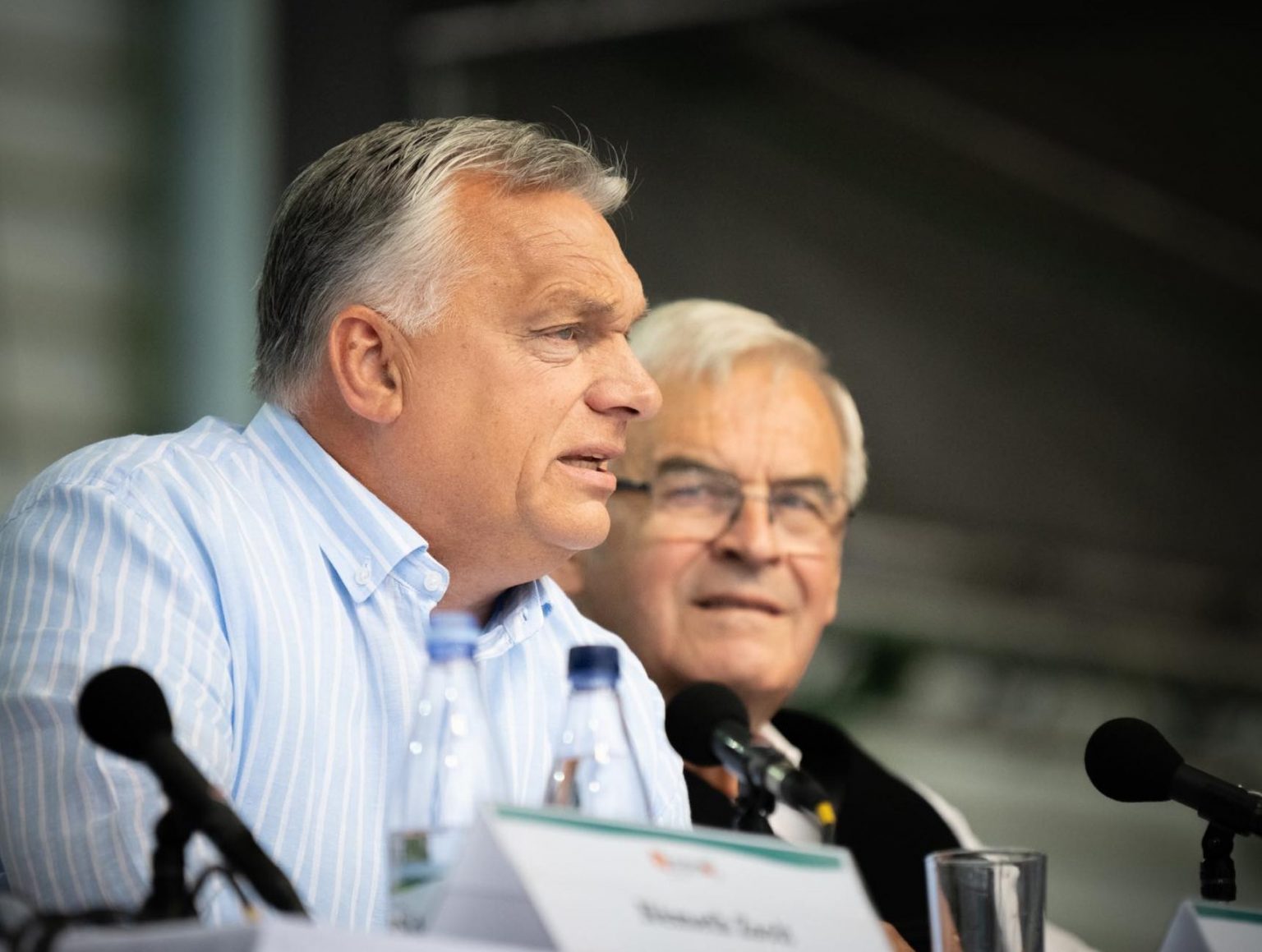
In a press conference on Dec. 21, Hungarian Prime Minister Viktor Orbán accused the European Commission of blackmailing his country over its anti-LGBTQ laws and other rule-of-law concerns.
“In our view, Hungary fulfils all the qualities of the rule of law, and when the European Commission has specific needs, we implement everything from them, and we are also cooperative,” Orbán told reporters. “You cannot blame me for doing everything I can to promote Hungary’s interests in such a blackmailed situation.”
Orbán has been embroiled in a long-standing dispute with the governing body of the EU, the European Commission, which has frozen billions of funds intended for Hungary over concerns about human rights and the rule of law in the country.
The government of the conservative ruling party of the prime minister has been feuding with the EU since passage of Hungary’s anti-LGBTQ education law in June 2021.
Orbán, who has publicly proclaimed that he is a “defender of traditional family Catholic values,” has been criticised by international human rights groups as discriminating against LGBTQ+ people with this law which European Commission President Ursula von der Leyen called a “disgrace.”
The European Commission, the ruling body of the EU, referred Hungary to the EU Court of Justice over the anti-LGBT law in mid-2022. The commission has said it considers that the law violates the EU’s internal market rules, the fundamental rights of individuals and EU values.
UNITED KINGDOM

A Manchester Crown jury found a pair of teenagers guilty in the murder of Brianna Ghey, a 16 year old trans girl and TikTok creator who was brutally stabbed to death in a park in Culcheth, Warrington, in February 2023.
The jury unanimously ruled the teens, known only as Girl X and Boy Y, guilty after deliberating for over four hours. The judge said she would have to impose a life sentence, with the official sentencing to take place next year.
Ghey, who lived in Birchwood, Cheshire, and was a junior at Birchwood Community High School had been bullied for her trans identity according to comments left on social media posts by friends and fellow students.
Her friends alleged she had been bullied and gang beaten at Birchwood Community High School for several years over the “simple reason of being trans.”
The gruesome details came out during the trial in Manchester, where the jury heard testimony that the pair, a male and a female, both 16 had a “thirst for killing” and were fascinated by torture.
PinkNewsUK reported a “murder plan” was later discovered in the female’s bedroom, and investigators discovered that they had put together a “kill list” made up of five children before they settled on making Ghey their first target. The jury also heard that male had referred to Ghey as “it” rather than “she,” which he said was a “joke” between himself and his female accomplice.
The Judge, Amanda Louise Yip, noted that she would have to impose a life sentence for both defendants. She explained that she will now have to decide what the “minimum amount of time you will be required to serve before you might be considered for release” should be.
Yip, after the jury’s verdict was delivered, announced there was a public interest in lifting restrictions on reporting the teenagers’ names, which because of their ages had not been disclosed. However she said the welfare of the defendants could be put at risk if supports were not put in place, BBC News reported.
The judge acknowledged that naming Ghey’s murderers would “cause distress to their families,” and she noted that they had already faced threats and harassment due to their children’s actions.
“I believe the appropriate balance can be achieved by directing that the order may be lifted but placing a [delay] upon it until the date of sentencing,” she said.

The Tory government’s Department for Education released a set of much-feared school policies and guidance concerning transgender students on Dec. 18. LGBTQ advocacy groups responded, describing the government’s draft guidance for trans schoolchildren proposals as “chilling” and “actively dangerous.”
PinkNewsUK reported the long-delayed guidance on how to support trans and non-binary pupils at school lays out steps to approach a range of issues, from social transition, to changing names and pronouns, to access to single-sex spaces.
The non-statutory guidance explicitly states that primary school-aged children “should not have different pronouns to their sex-based pronouns used about them,” and that if a child wishes to socially transition, parents should be engaged.
The plan further outlined policies that would forcibly out trans youth to their parents, ban pronouns for all primary school trans youth, prevent trans youth from using restrooms that align with their gender identity and could even lead to forced haircuts and clothing choices.
Journalist Erin Reed noted the policies even allow schools to enforce uniform policies based on a student’s assigned sex at birth, explicitly stating that trans students should follow the “hairstyle rules” of their assigned sex at birth. This would lead to trans girls being forced, for instance, to cut their hair short. You can see the policies here:
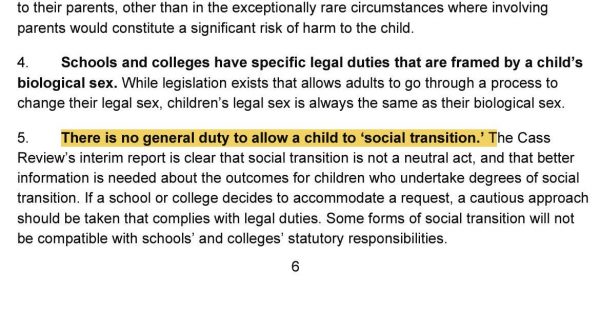
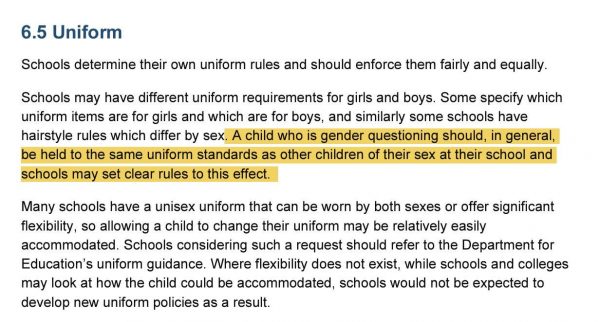
Social transition bans are, of course, seen and being promoted in other countries as well. New Zealand’s “Resist Gender Education” calls for the government to ban all social transition in schools, “even with parental consent.” In a statement to PinkNewsUK, Mermaids, a group that advocates for trans youth, added that the government’s guidance is “out-of-touch” and “absurd”.
“It is difficult to understand how aspects of this draft guidance, including automatically excluding trans pupils from facilities, sport bans or allowing students to be misgendered are compatible with existing equalities law,” the charity said.
“The overwhelming majority of teachers and parents believe trans pupils should be safe at school and will disregard these discriminatory guidelines, which will be non-compulsory.”
NEW ZEALAND
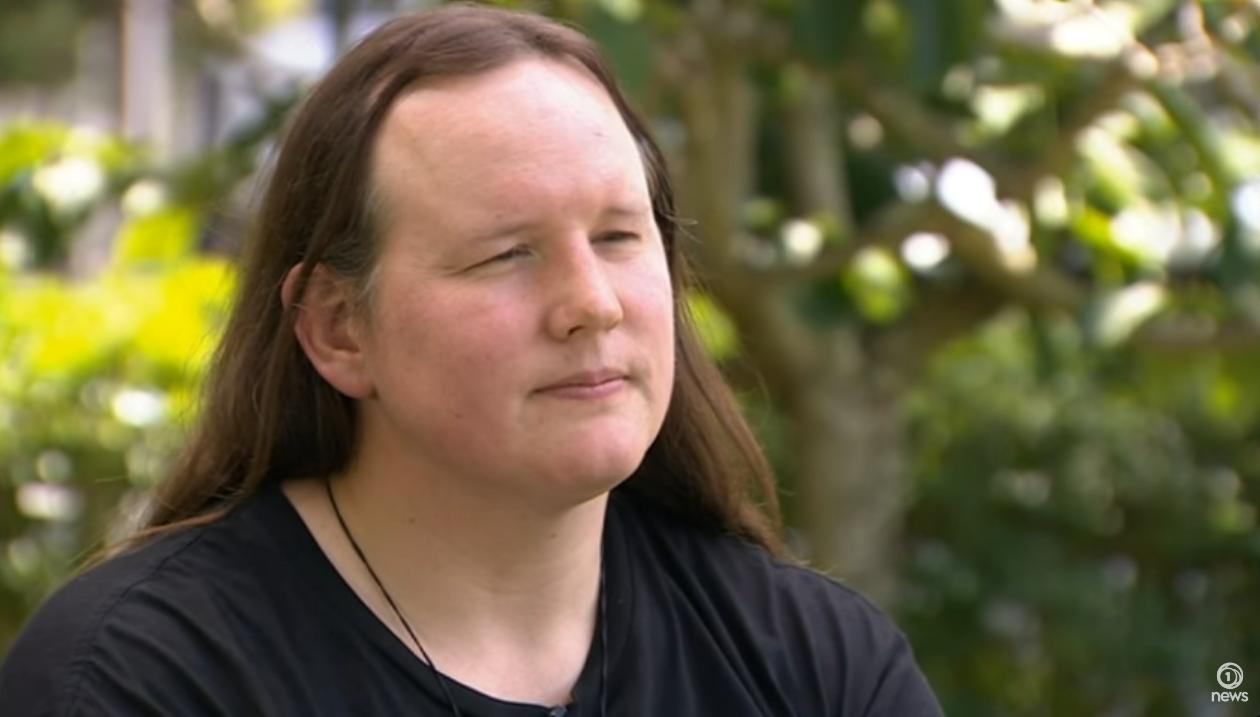
A new government policy will yank millions of dollars of public funding from New Zealand sports organizations as the government of newly elected Prime Minister Christopher Luxon sets out its agenda to “ensure publicly funded sporting bodies support fair competition that is not compromised by rules relating to gender.”
Andy Foster, a spokesperson for the populist and nationalist political New Zealand First party says it is “about fairness and safety in sport for women,” the NZ Herald reported.
Trans athlete and two-time national champion mountain biker Kate Weatherly told the Herald she fears it will lead to athletes being forced into men’s competitions or sidelined completely. Given the minimal number of trans women competing in amateur sports, Weatherly fears it could lead to their exclusion from the grassroots arena, she added.
Sport and Recreation Minister Chris Bishop was uncomfortable discussing the coalition agreement. “New Zealand First are very keen to make sure we have an inclusive environment and atmosphere for everybody — and that rules relating to gender don’t get in the way of that,” Bishop told the Herald.
“It is a tricky one, a thorny issue. There’s strong views on both sides of the debate. I’ll work through that with the relevant sporting bodies. Ultimately it’s got to go over to sporting bodies to make sure that we have fair competition.”
THAILAND
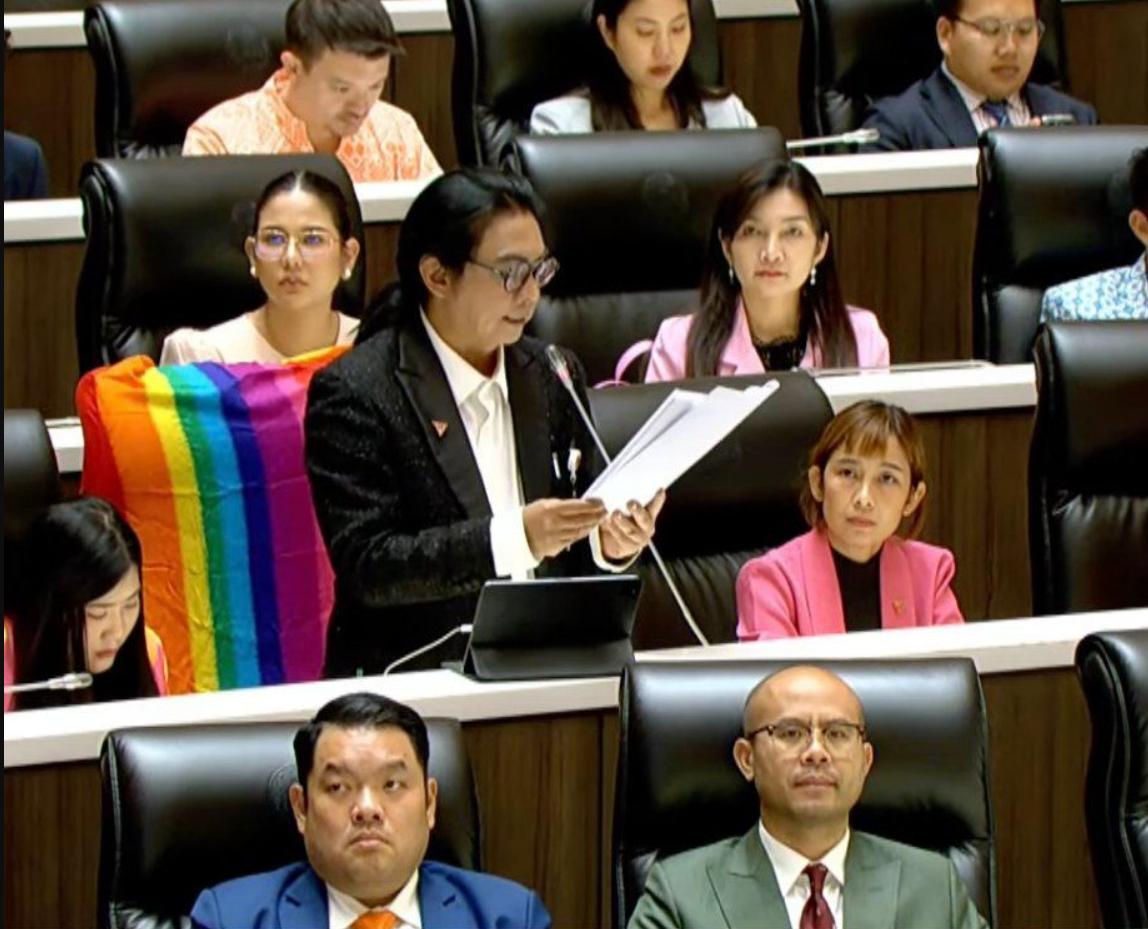
On Dec. 21, the Thai House of Representatives passed four draft bills regarding legalizing same-sex marriages in this Southeast Asia nation which has one of the more open cultures in that part of the world in acceptance of LGBTQ people.
Amnesty International Thailand Researcher Chanatip Tatiyakaroonwong noted in a statement:
“By potentially becoming the third place in Asia to legalize same-sex marriage, Thailand has the opportunity to set a bold example for LGBTI people’s rights in this region. These bills and the debates in Parliament over them represent a moment of hope for LGBTI people’s rights in Asia, even though there is still much to be done for their full protection.
The final version of this draft legislation must not water down calls for the full spectrum of the right to family life, including access to adoption and inheritance for LGBTI couples, as well as the legal recognition of same-sex couples as ‘spouses’ on an equal footing with different-sex couples.
As LGBTI activists have systematically demonstrated, efforts to broaden rights for LGBTI people don’t go nearly far enough to ensure equal rights guaranteed under international law. These bills set Thailand on a new path that could right those wrongs.
If legislation passes on first reading, Thailand’s Parliament should build on the momentum and prioritize the immediate adoption of this law, taking note of the celebratory reaction as a sign that the country is hungry for equality. Lawmakers in Parliament should continue to demonstrate to Thailand’s LGBTI community that they are listening and valuing their voices, wishes and perspectives.
Guaranteeing full marriage equality in law not only sends a message to the rest of the region but to the rest of the world, at a time when countries all over the globe are changing outdated laws and building more inclusive societies.”
Reuters reported that Deputy Prime Minister Somsak Thepsuthin told Parliament, referring to the government’s draft bill.
“In principle, this draft law is for the amendment of some provisions in the civic codes to open the way for lovers, regardless of their gender, to engage and get married. This will provide rights, responsibilities and family status as equal to the marriage between a man and a woman presently in all aspects,” he said.
Somsak said a government survey conducted between Oct. 31-Nov. 14 showed 96.6 percent public support for the draft bill.
Additional reporting from Esquerda News Lisbon, The Standard UK, Greek City Times, The Associated Press, Agence France-Presse, 24.HU News, PinkNewsUK, The BBC, Erin Reed, The New Zealand Herald and Reuters.

South Africa National Assembly Speaker Thoko Didiza on June 17 swore in lesbian feminist Palomino Jama as a new MP.
Jama joins other LGBTQ legislators — including Public Works and Infrastructure Minister Dean Macpherson; Forestry, Fisheries and the Environment Minister Dion George; and Deputy Women, Youth, and Persons with Disabilities Minister, Steve Letsike.
Jama said she will work hard and excel as MP.
“What a great moment to be alive. Thank you youth of 1976, thank you Simon Nkoli, Phumi Mthetwa, Paddy Nhlaphos, Vanessa Ludwig, and others for what you did for the LGBTI people in the 80s and 90s. Lastly, for the fierce fist of the Jamas to always hit where it matters for the people of this country,” said Letsike.
Embrace Diversity Movement, a local LGBTQ organization, said Jama’s inauguration came at an appropriate time, during Pride month.
“Her swearing-in took place during a month of profound significance in June, which marks both international Pride Month and Youth Month in South Africa,” said the group. “Palomino is a seasoned queer activist and dedicated community builder with a distinguished record of leadership and service.”
“The EDM proudly supports Palomino in her deployment to parliament, her presence meaningfully advances youth and queer representation in public office,” added the Embrace Diversity Movement. “We are confident that she will serve the people of South Africa with integrity, courage, and distinction.”
South Africa is the only African country that constitutionally upholds LGBTQ rights. There are, however, still myriad challenges the LGBTQ community faces on a daily basis that range from physical attacks to online abuse.
Letsike in May faced a barrage of online attacks after she released a scathing statement against popular podcaster Macgyver “MacG” Mukwevho, who during a podcast episode in April insinuated that the reason behind popular socialite Minnie Dlamini’s “unsuccessful” relationships were probably due to the bad odor from her genitals.
Letsike, who viewed MacG’s comments as offensive, called for the podcaster to be summoned before parliament’s Portfolio Committee on Women, Youth, and Persons with Disabilities and criticized the local television station that aired the podcast.
X users and other social media subscribers bombarded Letsike with anti-lesbian comments. She, however, was unphased.
Letsike continues to face anti-lesbian comments, even though MacG apologized and the television station on which his podcast had aired cancelled its contract with him.
Israel
Activist recalls experience in Tel Aviv after Israel-Iran war began
Marty Rouse was part of Jewish Federations of North America Pride mission

A long-time activist who was in Israel last month when its war with Iran began has returned to D.C.
Marty Rouse traveled to Israel on June 6 with the Jewish Federations of North America. The 5-day mission ended the night before the annual Tel Aviv Pride parade was scheduled to take place.
Mission participants met with Israeli President Isaac Herzog and several LGBTQ activists in Tel Aviv and Jerusalem. They visited the Western Wall, the Nova Music Festival site, and Nir Oz, a kibbutz in southern Israel that is less than a mile from the country’s border with the Gaza Strip. Mission participants also visited Sderot, a city that is roughly a mile from the Hamas-controlled enclave, a veterans rehabilitation facility, a new LGBTQ health center and the Aguda: The Association for LGBTQ Equality in Israel in Tel Aviv.
Hamas militants on Oct. 7, 2023, killed upwards of 360 partygoers and kidnapped dozens more at the music festival that was taking place at a campground near Re’im, a kibbutz that is roughly 10 miles southwest of Nir Oz. The militants killed or took hostage nearly a quarter of Nir Oz’s residents. They also took control of Sderot’s police station.

Tel Aviv Deputy Mayor Chen Arieli spoke at the mission’s closing party that took place at the Sheraton Grand, a hotel that overlooks Tel Aviv’s beachfront, on June 12.
Rouse and other mission participants planned to stay in Tel Aviv for the Pride parade, which was scheduled to take place the following day. He and Gordie Nathan, another mission participant who lives in Palm Springs, Calif., had checked into a nearby hotel that was less expensive.
“We said our farewells,” recalled Rouse when he spoke with the Washington Blade in D.C. on June 24. “We went to our hotels, and we get the warning, and then all hell broke loose.”
Israel early on June 13 launched airstrikes against Iran that targeted the country’s nuclear and military facilities.
Rouse said mission organizers told him and other participants who remained in Tel Aviv to meet at the Sheraton Grand for breakfast and dinner — Israel’s airspace was closed in anticipation of an Iranian counterattack, and authorities cancelled the Pride parade.
He said he went to bomb shelters at least twice a night for three nights.
Israel’s Home Front Command during the war typically issued warnings about 10 minutes ahead of an anticipated Iranian missile attack. Sirens then sounded 90 seconds before an expected strike.
Rouse and Nathan walked to the Sheraton Grand on June 13 when the Home Front Command issued a 10-minute warning. They reached the hotel in a couple of minutes, and staff directed them to the bomb shelter.
“You know to walk slowly, everything’s fine,” recalled Rouse. “You get 10 minutes, so everything was fine when the alarm goes off.”
Rouse described the Sheraton Grand shelter as “well lit” with WiFi, a television, and air conditioning. He was watching an Israeli television station’s live coverage of the Iranian missile attack when he saw one hit an apartment building in the Tel Aviv suburb of Ramat Gan.
A 74-year-old woman died and her boyfriend was seriously injured.
“I go over to look at the TV, just to watch,” recalled Rouse. “All of a sudden, you watch, and you see one bomb go and land and explode in Tel Aviv on TV. It landed and blew up.”
“I was like, okay, this is real, and so that was scary,” he added.
Rouse said the bomb shelter in the hotel where he and Nathan were staying after the mission ended was far less comfortable.
“It was dark. It was humid. It was hot. It was very uncomfortable,” said Rouse. “You really felt alone.”

Rouse and nearly everyone else on the mission who were in Tel Aviv when the war began left Israel on June 15. They boarded buses that took them to the Jordanian capital of Amman, which is a roughly 2 1/2-hour drive from Tel Aviv through the West Bank.
Rouse described the trip as “like a field trip” until they drove across the Jordan River and arrived at the Jordanian border crossing.
“You walk into this room, and instead of being in a well air-conditioned airport, you’re in this hot, humid, small place in the middle of the desert, packed with people, and those big, large, loud fans and pictures of military people on the walls,” he said. “It was almost like a Casablanca kind of feeling.”
Rouse said Jordanian authorities brought mission participants through customs in groups of 10. A Jewish Federations of North America liaison from Amman who previously worked as a tour guide for A Wider Bridge — a group that “advocates for justice, counters LGBTQphobia, and fights antisemitism and other forms of hatred” — went “behind closed doors” to ensure everyone was able to enter the country.
“It took a really long time,” Rouse told the Blade.

Mission participants arrived in Amman a short time later. They checked into their hotel and then had dinner at a restaurant.
“Now we feel like we’re safe and we’re in Amman,” recalled Rouse. “We’re sitting outside having a beautiful dinner.”
Iranian missiles passed over Amman shortly after Rouse and the other mission participants had begun to eat their dessert. They went inside the restaurant, and waited a few minutes before they boarded busses that brought them back to their hotel.
“No one was openly freaking out, which I was surprised by,” said Rouse.
The group was scheduled to fly from Amman to Cairo at 11 p.m. local time (4 p.m. ET) on June 16. They visited Jerash, an ancient city north of Amman, before their flight left Jordan.
“[The Jerash trip] actually took our minds off of everything,” said Rouse.
A Jewish Federations of North America contact met Rouse and the other mission participants at Cairo’s airport once their flight landed. Rouse arrived at JFK Airport in New York on June 17.
Trump-announced ceasefire ended 12-day war
President Donald Trump on June 23 announced a ceasefire that ended the 12-day war.
The U.S. three days earlier launched airstrikes that struck three Iranian nuclear sites. The ceasefire took effect hours after Iran launched missiles at a U.S. military base in Qatar.
Iran said the war killed more than 900 people in the country.
The Associated Press notes Iranian missiles killed 28 people in Israel. One of them destroyed Tel Aviv’s last gay bar on June 16.
The war took place less than two years after Oct. 7.
The Israeli government says Hamas militants on Oct. 7, 2023, killed roughly 1,200 people on that day when it launched its surprise attack on the country. The militants also kidnapped more than 200 people.
The Hamas-controlled Gaza Health Ministry says Israeli forces have killed nearly 55,000 people in the enclave since Oct. 7. Karim Khan, the International Criminal Court’s chief prosecutor, has said Israeli Prime Minister Benjamin Netanyahu and former Hamas leader Yahya Sinwar, who the IDF killed last October, are among those who have committed war crimes and crimes against humanity in Gaza and Israel.

Rouse upon his return to the U.S. said he “was never as aware of the comfort of another human being than I was during that time.” Rouse affectionately called Nathan his “bomb shelter boyfriend” and even questioned the way he reacted to the missile alerts.
“He’s sitting on the edge of the bed and he goes, okay, I’m going to put on my socks and my shoes, and I say, really? You’re going to put on your socks,” Rouse told the Blade. “The fact that I was nervous, that putting on socks might have changed the direction of our lives, to me was like I can’t believe I said that to him.”
Rouse quickly added Nathan helped him remain calm.
“If I was by myself, those nights would have been long enough,” said Rouse. “It’s a totally different feeling to be with another human that you know than to be by yourself.”

Rouse also praised the Jewish Federations of North America.
“JFNA really sprung into action and started to figure out all options to get us all safely home,” said Rouse. “It was all about logistics. Staff worked around the clock identifying and then mobilizing to get us back to the states. It was a great team effort and I know I speak for everyone in expressing our deep appreciation for their dedication to getting us safely home.”
Latin America
Protests, demands for rights define Pride month in Latin America
More than 3 million people participated in São Paulo march

Activists across Latin America marked Pride month with massive demonstrations, cultural activities, and demands that their countries guarantee equality and protect LGBTQ people from violence.
From Santiago, Chile, to Mexico City, activists took to the streets to celebrate the rights that have been won and the many that are still pending.
Chile
The Pride march that the Movement for Homosexual Integration and Liberation (Movilh) and Fundación Iguales organized took place in downtown Santiago, the country’s capital, on June 22. Authorities and the two organizations say more than 120,000 people participated.
Under the slogan “Pride with memory and hope,” marchers demanded lawmakers approve a bill that would allow reparations for LGBTQ Chileans who Gen. Augusto Pinochet’s dictatorship targeted. There were also calls for the government to promote an LGBTQ-inclusive educational reform.
“This time we are marching on high alert,” said Movilh spokesperson Javiera Zúñiga. “For the first time in decades, we are losing achieved rights. We demand the state wake up. The reform of the Zamudio Law has been stalled for 13 years.”
Marches also took place in Valparaíso, Antofagasta, Temuco, and Concepción, highlighting the growing visibility of transgender groups and feminist organizations.
Mexico
Mexico City on June 29 was the epicenter of one of the region’s largest Pride marches.
More than 300,000 people participated in the march. Comité IncluyeT organized the 46th annual march under the slogan “Not one step back: rights are respected.”
Several organizations denounced the increase in hate crimes — Mexico’s National Observatory of Hate Crimes notes more than 80 LGBTQ people have been reported murdered in the last year. They also urged Mexican lawmakers to criminalize transfeminicides across the country.
Argentina
Although Buenos Aires’s official Pride march takes place in November, the Argentine LGBT+ Federation and other groups in the Argentine capital and in other cities across the country in June organized activities.
More than 5,000 people on June 24 marched from Plaza de Mayo to the Argentine Congress to reject the government’s dismantling of public policies. President Javier Milei’s decision to eliminate the country’s Women, Gender, and Diversity Ministry and cut sexual health programs were among the moves the protesters denounced.
“Today Pride is also resistance to the adjustment,” pointed out Comunidad Homosexual Argentina, an LGBTQ advocacy group.

Colombia
Thousands of people in Bogotá, the Colombian capital, and the cities of Medellín, Cali, and Barranquilla marched on June 29.
The marchers’ slogan was “diversity is also peace,” in a context where violence against LGBTQ people remains high. Caribe Afirmativo, a Colombian LGBTQ rights group, notes more than 45 people from the community has been reported killed in the country over the last 12 months, with most of them trans women.
Organizations also demanded lawmakers resume debate of a bill that would extend comprehensive protections to LGBTQ Colombians. The measure has been stalled in Congress since 2023.
Brazil
More than 3 million people participated in the 28th São Paulo LGBTQ+ Pride Parade that took place on the city’s Paulista Avenue on June 22.
The parade took place under the slogan “LGBT+ social policies: we want the whole thing, not half of it.” Organizers demanded expanded access to health care, employment, and education for the most vulnerable communities, especially Black trans people. They also denounced ultraconservative figures who seek to curtail LGBTQ rights.
Peru and Paraguay
More than 15,000 people took part in a Pride march in Lima, the Peruvian capital, on June 28. Participants demanded lawmakers approve a trans rights law, which has been stalled in the Peruvian Congress since 2016, and recognition of civil unions.
Members of SomosGay, a Paraguayan LGBTQ rights group, and other organizations participated in a Pride march that took place in Asunción, the country’s capital, on June 29.
The march took place without incident, despite threats and anti-LGBTQ hate speech on social media. Participants demanded an end to anti-LGBTQ discrimination and rhetoric from social and religious groups.
Central America
Upwards of 2,000 people participated in a Pride march in Tegucigalpa, the Honduran capital, on June 22. A Pride demonstration took place in San Salvador, the capital of neighboring El Salvador, on June 28.
-

 U.S. Supreme Court3 days ago
U.S. Supreme Court3 days agoSupreme Court to consider bans on trans athletes in school sports
-

 Out & About3 days ago
Out & About3 days agoCelebrate the Fourth of July the gay way!
-

 Virginia3 days ago
Virginia3 days agoVa. court allows conversion therapy despite law banning it
-

 Federal Government5 days ago
Federal Government5 days agoUPenn erases Lia Thomas’s records as part of settlement with White House











